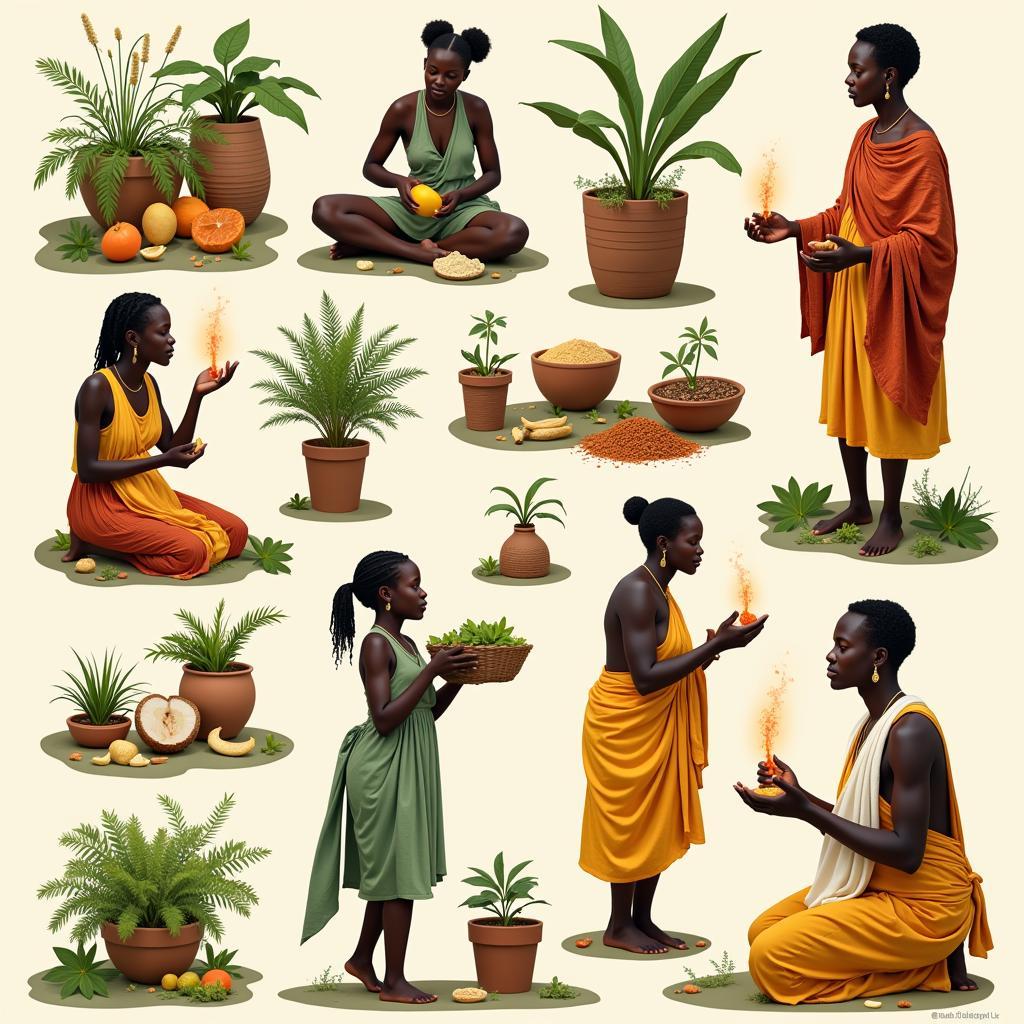Exploring the Rich Tapestry of African Culture: A Journey Beyond Stereotypes
Africa is a vast and diverse continent, home to a multitude of cultures, languages, traditions, and histories. Often portrayed through a narrow lens of stereotypes and generalizations, Africa’s true richness and complexity are often overlooked. This article aims to shed light on the vibrant tapestry of African culture, venturing beyond superficial representations and exploring the depth and beauty of its diverse expressions.
Unveiling the Multifaceted Nature of African Culture
African culture is not a monolith; it is a kaleidoscope of unique expressions, shaped by centuries of history, geography, and interaction. From the vibrant dance rhythms of West Africa to the intricate beadwork of Southern Africa, each region possesses a distinct cultural identity that deserves to be celebrated and understood.
Delving into the Historical Roots of African Culture
Understanding African culture requires delving into its rich historical roots. The continent has been a cradle of civilization for millennia, with ancient empires like the Egyptians, Malians, and Zulus leaving behind legacies that continue to inspire and shape modern-day societies. These empires developed sophisticated systems of governance, art, and trade, demonstrating the ingenuity and cultural prowess that characterized African history.
Exploring the Artistic Expressions of African Culture
Africa is renowned for its vibrant and expressive art forms, encompassing a wide range of mediums and traditions. From the intricate wood carvings of the Yoruba people to the vibrant textiles of the Ashanti, African art embodies the unique perspectives and values of its creators.
Visual Arts:
- Sculpture: African sculpture is characterized by its diverse styles and themes, often depicting spiritual beliefs, social structures, and historical figures. The iconic “Nok Terracotta” sculptures from Nigeria are a testament to the continent’s artistic heritage.
- Painting: African painting encompasses a wide range of styles, from the traditional murals of the San people to the modern abstract works of contemporary African artists. These works often express themes of social commentary, cultural identity, and spiritual beliefs.
- Textiles: From the intricate beadwork of the Himba people to the vibrant fabrics of the Yoruba, African textiles are a testament to the creativity and skill of the continent’s artisans. These textiles are often used for ceremonial purposes, clothing, and decoration.
Performing Arts:
- Music: African music is known for its rhythm, energy, and diversity. From the complex polyrhythms of West African music to the soulful melodies of South African music, African music is a powerful force of expression and cultural identity.
- Dance: African dance is a vibrant form of storytelling and social expression. From the graceful movements of the traditional Ethiopian dances to the energetic steps of the Zulu dance, African dance is a testament to the continent’s physicality and cultural dynamism.
- Literature: African literature is a rich and diverse genre, encompassing oral traditions, poetry, prose, and drama. Writers like Chinua Achebe, Ngugi wa Thiong’o, and Wole Soyinka have made significant contributions to the world of literature, exploring themes of colonialism, identity, and social change.
Discovering the Culinary Delights of African Cuisine
African cuisine is as diverse as the continent itself, with each region boasting its own unique culinary traditions. From the aromatic spices of the Maghreb to the hearty stews of West Africa, African cuisine is a flavorful journey for the senses.
Key Ingredients:
- Cassava: Cassava is a staple ingredient in many African cuisines, used in a variety of dishes, including fufu, tapioca, and bread.
- Rice: Rice is another popular staple in African cuisine, used in a variety of dishes, including jollof rice, fried rice, and rice pudding.
- Plantains: Plantains are a versatile fruit used in a variety of African dishes, from fried plantains to stewed plantains.
- Yams: Yams are a starchy root vegetable used in a variety of African dishes, including pounded yams, fried yams, and yam soup.
- Spices: African cuisine is known for its aromatic spices, including cumin, coriander, ginger, garlic, paprika, and chili pepper.
Traditional Dishes:
- Jollof Rice: Jollof rice is a popular West African dish made with rice, tomatoes, onions, and spices.
- Fufu: Fufu is a starchy dough made from boiled cassava, yam, or plantains, often served with soup or stew.
- Nyama Choma: Nyama choma is a popular East African dish of grilled meat, often marinated in spices and served with a side of ugali (a maize flour porridge).
- Bissap: Bissap is a refreshing West African drink made from hibiscus flowers, often served chilled and sweetened with sugar.
Embracing the Cultural Practices of African Society
African society is characterized by strong communal bonds and a deep respect for tradition. These values are reflected in a variety of cultural practices, including:
- Family and Community: Family and community are central to African society, with strong bonds of kinship and loyalty shaping social structures and values.
- Respect for Elders: Respect for elders is an important tradition in African society, with elders often serving as respected sources of wisdom and guidance.
- Music and Dance: Music and dance are integral parts of African culture, serving as forms of entertainment, social expression, and spiritual connection.
- Ceremonies and Rituals: African societies are rich in ceremonies and rituals that mark important life events, from births and weddings to funerals and festivals.
- Traditional Dress: Traditional dress plays a significant role in African culture, often symbolizing identity, status, and spiritual beliefs.
Embracing the Diverse Identities of the African Diaspora
The African diaspora, comprised of people of African descent living outside of the continent, is a testament to the enduring legacy of African culture. From the Caribbean to the Americas, the diaspora has preserved and adapted African traditions, creating unique expressions of cultural identity.
Conclusion: Celebrating the Rich Tapestry of African Culture
Africa’s cultural tapestry is rich, vibrant, and multifaceted. By venturing beyond stereotypes and embracing the continent’s diverse expressions, we can gain a deeper appreciation for the beauty and complexity of African culture. This journey of exploration can inspire us to challenge our preconceived notions, celebrate the unique identities of African people, and contribute to a more inclusive and understanding world.
FAQ
1. What are some of the most popular African languages?
Some of the most popular African languages include Swahili, Arabic, Hausa, Yoruba, and Zulu.
2. What are some of the most important festivals celebrated in Africa?
Some of the most important festivals celebrated in Africa include Eid al-Fitr, Eid al-Adha, Christmas, Easter, Kwanzaa, and Carnival.
3. What are some of the most iconic landmarks in Africa?
Some of the most iconic landmarks in Africa include the Great Pyramids of Giza, Victoria Falls, Table Mountain, and the Serengeti National Park.
4. What are some of the most important African historical figures?
Some of the most important African historical figures include Nelson Mandela, Kwame Nkrumah, Jomo Kenyatta, and Patrice Lumumba.
5. What are some of the challenges facing African culture today?
Some of the challenges facing African culture today include globalization, urbanization, and the influence of Western culture.
6. What are some ways to learn more about African culture?
There are many ways to learn more about African culture, including visiting museums, attending festivals, reading books, and watching documentaries.
7. How can I support African culture?
You can support African culture by patronizing African businesses, attending cultural events, and donating to organizations that support African cultural initiatives.

